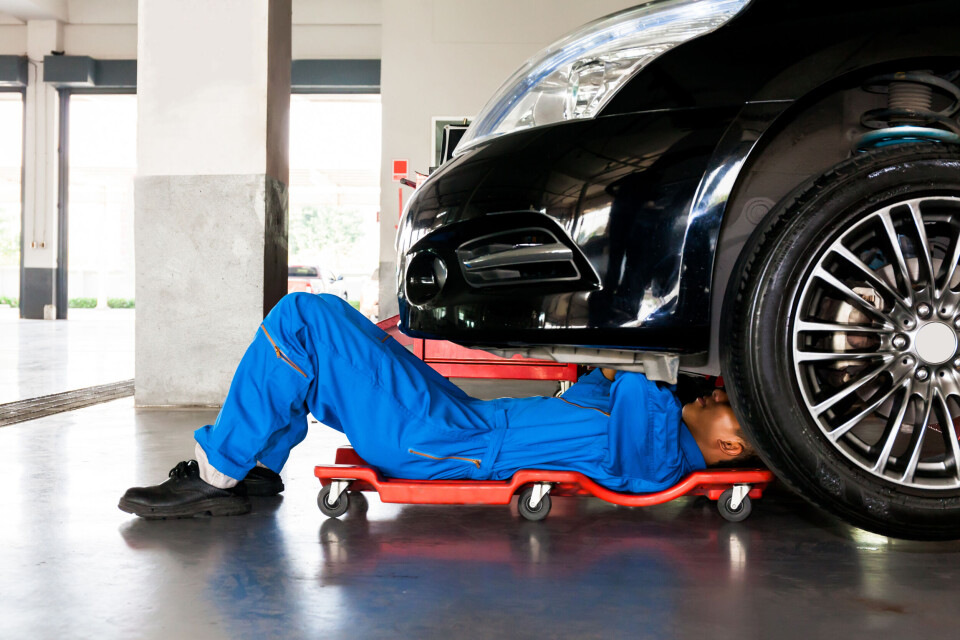-
Britons are the largest foreign community of second-home owners in Nouvelle Aquitaine
See which other departments in the region are popular with British nationals
-
Travellers risk extra costs under new Eurotunnel ticket rule
Some fare options are less flexible and less forgiving of lateness
-
May will be difficult month for train travel in France, warns minister
Two major train unions are threatening to strike and are ‘not willing to negotiate’, he says
French firm invents kit to convert petrol cars into plug-in hybrids
The technology is not cheap but will allow older cars to bypass emission regulations in French cities

Garages across France are expected to be soon able to convert diesel and petrol cars to hybrid rechargeable vehicles, reducing both petrol costs and emissions.
A French company says it has invented a kit that can be installed in a number of older vehicles, converting their combustion engines to a plug-in hybrid car.
Once installed, the battery will give cars a 70 km range before needing to be recharged – and will allow cars to enter low-emission zones (ZFEs) in cities where they might otherwise be banned.
Aimed at drivers of city cars (like hatchbacks), the kits will be available to install for Renault Clio 3, Kangoo, Scenic and Megane models, alongside Dacia Logan and Sandero cars in 2024, followed by Peugeot, Citroën and Ford cars in 2025.
“It's a transitional solution for many motorists who won't be able to afford to buy an electric vehicle,” said Éric Boudot, managing director of Green Corp Konnection, the company behind the gadget.
On top of being cheaper than buying a new vehicle, the government is also considering offering financial aid for drivers looking to install the kit.
Can help bypass low-emission zone restrictions
The kits are targeted at cars which fall under the Crit’Air level 3 category – petrol cars registered between 1997 and 2005, and diesel cars registered between 2006 and 2010.
Any vehicle driving through one of France’s Zones à faibles émissions (ZFE, or low-emission zones) needs a Crit’Air sticker on its windshield to show the level of pollution the car emits.
Although there are no cities that currently ban cars with a Crit’Air level 3, Paris was originally set to limit vehicles with this category driving in the city between 08:00 and 20:00 this year (but has pushed this back in light of the 2024 Olympic games).
Urban areas with a ZFE will eventually see cars of a Crit’Air level 3 being banned or restricted, however.
Cars with Green Corp Konnection’s Twin-E battery installed will no longer be classified at this level, however, and will bypass future bans on complete petrol and diesel engine vehicles in ZFEs.
The 70km range will allow drivers to use the battery within city limits (where ZFEs are present) before switching to their combustion engine for longer journeys.
When the kit launches commercially next year, around 1,000 garages in France will initially be able to install it.
Read more: Where in France must drivers now display a Crit’Air pollution sticker?
French government could offer financial aid
Although cheaper than buying a new car the kit will still cost around €7,500 to install, according to Le Parisien.
“Today, we are capable of industrially managing the launch… but we are in the process of signing contracts with French automotive giants to manufacture parts on a larger scale,” said Mr Boudot.
“The aim is to supply a system that is 100% made in France,” he added, pointing towards efforts to re-industrialise France recently announced by President Macron.
The government is floating the idea of offering financial assistance for installing the kit, although nothing has been confirmed yet.
The kit will be tied closely to any future developments of ZFEs in France, or other ecological changes.
The kit can be adapted and “easily evolve to align with political decisions,” concluded Mr Boudot.
Related articles
French police pose as buyers to recover €140,000 stolen Bugatti
Citroën to sell 1,000 more tiny cars some can drive without a licence
























